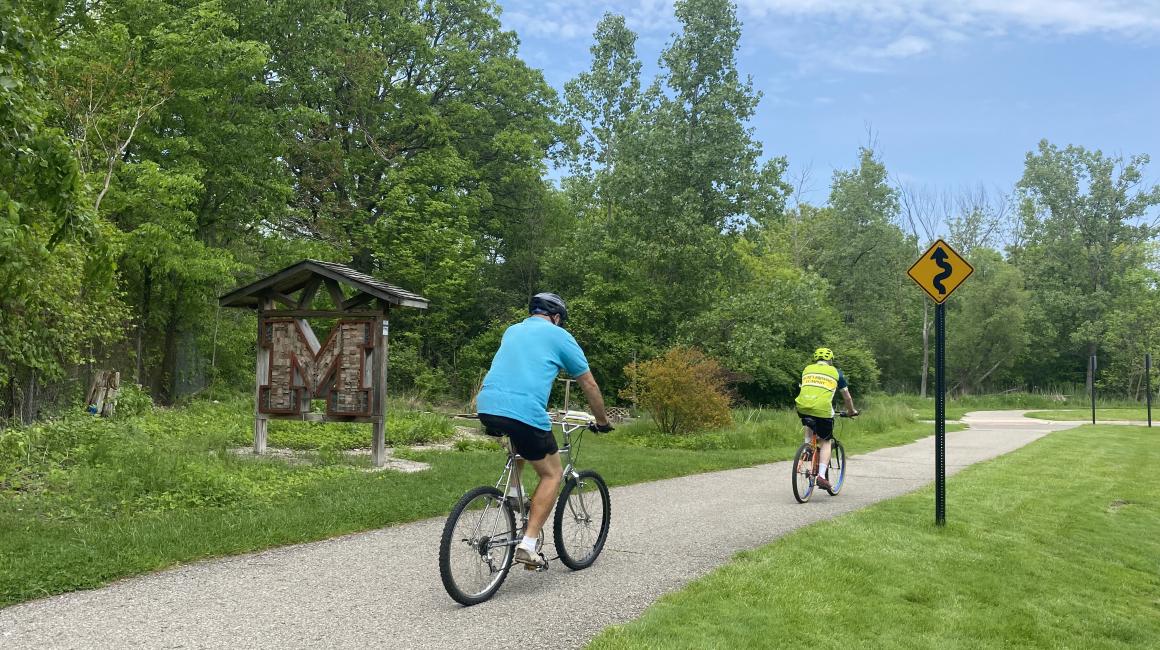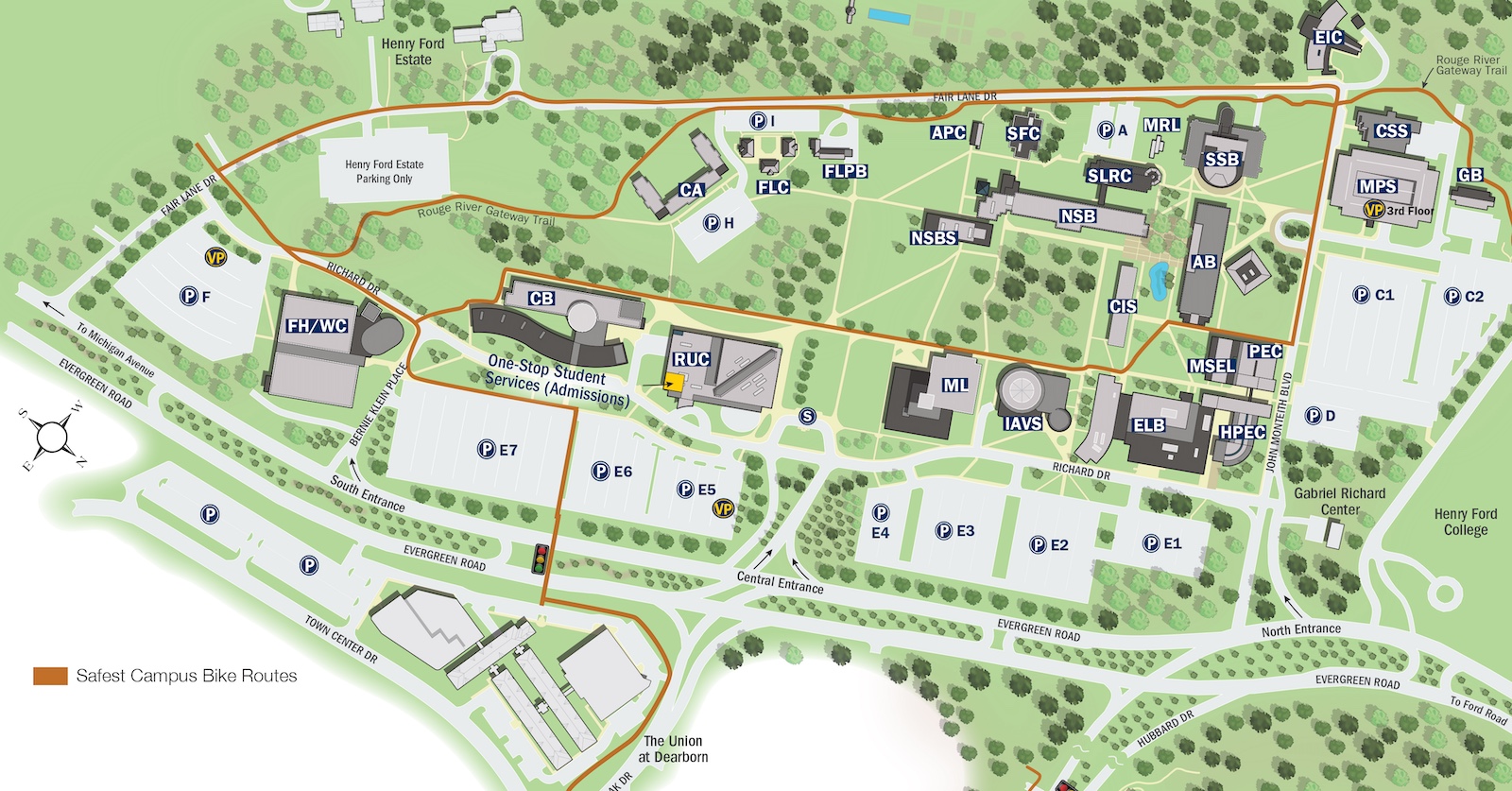
Nearly all of the UM-Dearborn community is committed to sustainability efforts and energy conservation, according to a U-M Sustainable Cultural Indicators Program survey. In the same report, respondents indicated that they knew very little about alternative transportation modes like biking. So UM-Dearborn’s Bikeable Campus Task Force looked into ways to support biking across UM-Dearborn to help bridge these two areas. “People indicated in the survey, which was from 2021, that they want to support environmental sustainability. We want to help them. But it's important to note that sustainability considers more than just the environment — it connects to human health, mental wellness and safety,” said Sustainability Programs Coordinator Grace Maves, who led the task force.
Campus bike-related changes coming this summer include:
- Wayfinding signage and safety reminders will be placed on multi-use pathways and roadways that the task force identified as the safest campus bike routes
- Sharrows, which help riders with wayfinding and safe positioning on roads, will be placed on areas of Fair Lane Drive and Monteith Boulevard to indicate shared roads
- Bike racks will be redistributed to better serve often-used gathering spaces and stops along the recommended bike routes. For example, bike racks will be placed in the Chancellor’s Pond area.
The task force also made recommendations for the future, including adding a designated bike lane crossing through campus and along the campus portion of the Rouge River Gateway Trail.“Our leadership is committed to being a bike-friendly campus, and that kind of support is what makes sustainability achievable,” Maves says. “Yes, we are a commuter campus. But there are still ways to utilize alternative transportation methods, and make those modes accessible and safe. We want to create changes that support our campus’ needs.” She said a new survey will be sent to the UM-Dearborn community in fall 2024 to track changes in ridership and campus sustainability culture.
Maves hopes these changes will boost ridership on campus, better support the bike-riding events on campus, like the Chancellor’s Town and Gown bike ride and walk, and add safety features for the riders who currently bike to and from campus for classes and work.





